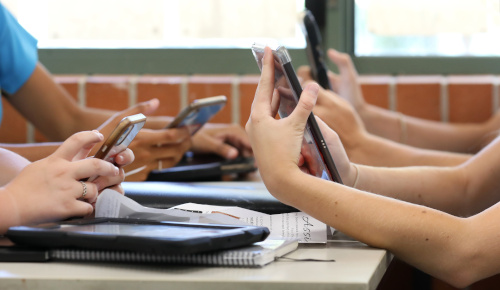When the pandemic prompted schools to quickly shift to distance learning last spring, educators became responsible for using online technologies to teach students. This was the first time that many educators had to grapple not only with virtual classroom management, but with helping their students learn the ins and outs of staying safe online. This included a crash course in learning and behaving online.
This set of “online manners” is referred to as digital citizenship, which is how we should behave when using digital tools, interacting with others online, and becoming better stewards of technology.
As a leader of a nonprofit where young kids connect and learn online, we prioritize teaching kids these important skills that will take them well into adulthood.
Students need to be taught things like:
- Behaving appropriately when online, i.e., encouraging students to use THINK:
- Is it Truthful?
- Is it Helpful?
- Is it Inspiring?
- Is it Necessary?
- Is it Kind?
- Learning to protect their private information online.
- Being respectful of themselves and others.
- Saying “no” to disruptive or bullying behavior, and encouraging others to do the same and be respectful.
- Negotiating conflict with others, for example, in online games or while collaborating on a project.
- Recognizing the benefits of teamwork when partnering in a virtual space.
- Becoming effective communicators by sharing messages and ideas using global chat and voice chat tools like Discord can increase confidence and self-esteem.
- Sharing their mistakes and persistence with others. Doing so will help them see failure as both an opportunity to learn (“Well, that didn’t work!”) and as a chance to save others from a similar fate.
Practicing good digital citizenship should include a pathway of communication and online community rules to build a safe place for everyone involved. On our free Kids Club Minecraft server, we have fluid rules to allow kids to learn and grow without fearing punishment for making mistakes. While we occasionally have to ban a child for 24 hours for inappropriate behavior, this usually only happens with more extreme cases when a child breaks the rules repeatedly and with malicious intent. In those cases, we are also in conversation with the child’s caregiver and provide additional tips for helping the child re-enter the community. We see it more as a learning opportunity to teach young people to make good choices and be respectable online citizens.
School librarians can also assist with teaching digital citizenship. In teaching early literacy, librarians may encourage caregivers to talk through work-specific tasks with their children and explain the uses for a device. They can discuss the importance of copyright protection and incorporate technology-related books into their storytimes.
There are several resources online that teach children digital citizenship. Common Sense Media, for example, provides free digital citizenship courses for grades K-12. There are also digital citizen apps, such as Easy Tech by Learning.com, that aim to teach kids basic uses, best practices, and safety risks online, or a unit by BrainPOP that instructs kids on online best practices through fun activities, quizzes, and games. Cyberwise also offers a free digital course for parents and educators, as well as resources and articles.
The resources are out there, and the demand is increasing as we become more connected. Our youth need to be supported by schools, parents, and peers to develop the necessary skills to survive and thrive online. It’s up to us all to work together to prepare our children for the digital world.
- 4 ways to encourage play in education - April 25, 2024
- It’s time to pay student teachers - April 25, 2024
- The evolving requirements of a K-12 school network - April 24, 2024

